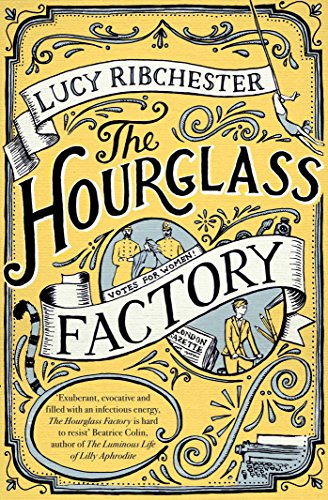The Hourglass Factory
My mother always told me that it was my duty to vote, and not just a civic duty: “Women suffered so you could have that vote”. Reading The Hourglass Factory, it is hard not to conclude that Lucy Ribchester is unsure why they bothered. The suffragettes, whose struggle forms a backdrop to her murder mystery, range from shrill violent harpies to, at best, a witch who “charms police horses”. The only victim of force-feeding shown in the book is a man, the main character remains unconvinced by the suffragettes, despite being a working woman who prefers to dress in trousers, and, ultimately, despite the female characters’ investigative efforts, it is the male characters who are required to save the day. A message repeated throughout the book is that gaining a vote will not help the average working-class woman. I wonder if this is a side effect of the “Russell Brand Generation”; if voting and the entire political system is an ineffective facade, the women who struggled to gain those votes are no longer heroines.
Her political views aside, Ribchester tells a good story. While her characters can be two-dimensional, from Frankie, the plucky young journalist, to Milly, the disaffected socialite performing as an exotic dancer, she has a good turn of phrase, particularly in her writing about dance, which one character describes as allowing curled paper inside her to “slowly unfurl… as the drumbeat goes on”. She has done a significant amount of research (research that she does not always wear lightly, unfortunately; the book is peppered liberally with popular brand names from the period, from “Fenwick” to “The Olde Cheshire Cheese”). However, the plot was strong, and the twist, although properly heralded, was a surprise when revealed. I will be watching for Ribchester’s future books with interest.










